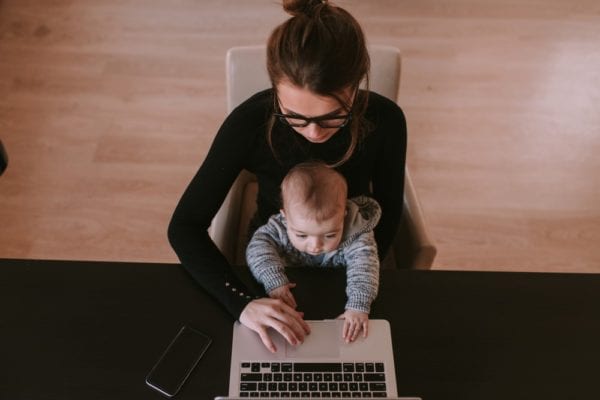It led me to think: “Is there really a difference between being a ‘worker’ and ‘mum’ or “working mum”?
The answer, frankly, is yes.
Let me share this story for context:
Recently, I was helping out at my son’s Joey Scout group, where ten 5-7 year olds go nuts for an hour and do things they aren’t allowed to at home. Packing up at the end of the evening, it hit me that for the first time since finishing my parental leave I felt like a mum. Just a mum. A mum who (for a whole hour) had been present, was doing something just for her son, hadn’t thought about this as ‘work-life balance’ activity – and I’d enjoyed it. I wondered if this is what it felt like to be a mum rather than a working mum.
What is Identity?
We all carry around a bunch of identities with us, and research tells us that generally more resilient people have more identities. For example, if you forget to feed the dog while booking a weekend away for you and your partner, your “pet owner” identity might take a battering, but at least you can take comfort in the “good spouse” identity.
Fundamentally, identity is the answer to “Who am I?”. It’s a process of understanding our strengths, our purpose, and how to express our strengths and purpose in a meaningful way. We start grappling with these ideas in adolescence, and from then on engage in a life-long exploration of what makes us tick. Our identities mature and multiply as we transition through significant life events.
It helps when our different identities are compatible with each other, which is perhaps why the “working mum” identity evolved. For a long time being a mother and a worker was incompatible – women had to resign their jobs when they became pregnant. That legacy has had far reaching implications. Maybe when mums finally won the right to stay in the workforce, the idea of being a “working mum” created solidarity for women who otherwise found they couldn’t reconcile these different aspects of themselves.
Times are improving however, and thankfully being both a mum and a worker is now widely accepted.
What’s wrong with the Working Mum Identity?
I believe that taking on the “working mum” identity depletes our resilience. If I drop the ball at work then I’m a bad “working mum”, and if don’t make it to my kid’s concert I’m a bad “working mum”. Either way I lose.
There’s also so much discussion about “working mums” in social media, books, magazines, etc, and not all of it is helpful. We get told to work part-time and not to expect too much from work. We get told to feel guilty about leaving our children at daycare, we get told we don’t measure up to stay-at-home-mums, we even get told that our husbands lose out when the mother of their kids has a job too.
Often these discussions are had with the best of intentions, but they are all grounded in the fabrication of a “working mum” identity that we then compare ourselves with.
Let’s think about “female politicians” for a moment. What do we get by identifying them as specifically female, not just as politicians? It could imply a number of things – perhaps we’re inclined to expect less of them, pay them less, comment on their appearance rather than their policies.
What does it mean for their self-image? Someone who thinks of themselves as a “female politician” might well hold themselves to a different standard than someone who sees themselves as a politician who just happens to be female. Surely, it’s better all-round if we just expect our politicians to be the best at their job, and leave them to work out their own gender identity in private.
How do I be a Mum and a Worker?
When we transition back to paid work after parental leave we need to redefine that work identity. Often we can’t work the way we used to, given the added responsibility and time constraints that being a parent brings. Our mother identity also needs to evolve in step with our children’s developmental stages and our other identities. And if these identities are separate then we can explore, define and mature at a pace that works for us.
So what are the practical implications of separating these identities and letting them evolve and mature independently? I believe the implications are very practical and good for our well-being.
- Self-worth: it helps knowing that you are made up of a whole host of aspirations and talents, and that these can be expressed in so many different ways. When things fail in one area of your life, then it can boost your self-worth having success in other areas and knowing there are countless options to create a meaningful life.
- Work-life boundaries: forget work-life balance, it’s all about boundary management! First, we need a clear sense of our different identities, then we can work out the extent to which we want to integrate or separate them. By starting with distinct identities the choice become ours, rather than feeling obliged to be a mum at work and work at home, and struggling to please everyone.
- Personal growth: I’ve found it hard to find inspiring and balanced “working mum” role models; we often don’t see the whole person to work out how they do it. However, we can usually find work role models in the work context and parenting role models amongst friends and families to inspire these separate identities to grow and mature.
I think that the most important thing it to be able to reflect in those tough, time pressured moments and ask myself, “as a mum, what do I want to do?” and “as someone who takes pride in my work, what do I want to do?” Then navigate that intersection in creative ways that bring out the best in both.


